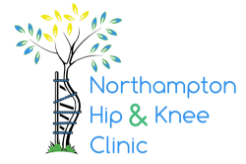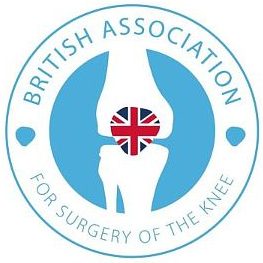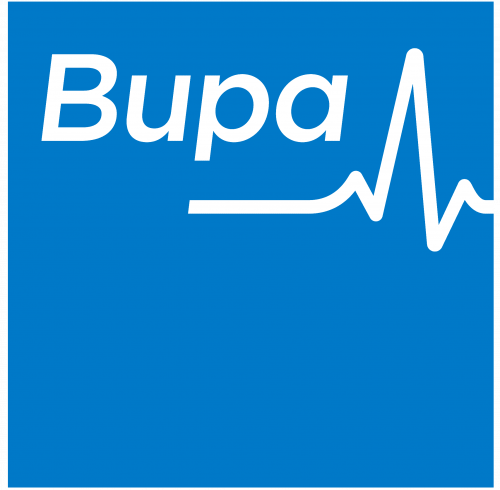Coeliac disease, often understood as a digestive issue, is a complex autoimmune disorder. It triggers an adverse reaction to gluten, a protein found in wheat, barley, and rye, leading to damage in the lining of the small intestine. While the immediate focus is often on gastrointestinal symptoms, there’s a crucial, often overlooked, connection: coeliac disease and bone health.
According to Coeliac UK, about 1 in every 100 people in the UK has coeliac disease. This equates to roughly 670,000 individuals nationwide. However, only a small proportion have received an official diagnosis, with an estimated 500,000 people still unaware they have the condition.
For those living with this condition, the risk of developing weakened bones and osteoporosis is significantly higher.
How Coeliac Disease Affects Bone Health: The Malabsorption Menace
The insidious nature of coeliac disease lies in its impact on nutrient absorption. When someone with coeliac disease consumes gluten, their immune system mounts an attack, damaging the delicate villi that line the small intestine. This damage severely impairs the absorption of nutrients vital for overall health, particularly those critical for strong bones.
Key culprits in this malabsorption include calcium and vitamin D, but other essential nutrients are also affected. This long-term deficiency leads to a reduction in bone mineral density, a primary indicator of bone strength. Over time, this can progress to osteoporosis.
Why Bone Health Matters: The Silent Threat of Osteoporosis
Osteoporosis is a condition characterised by brittle and fragile bones, making them susceptible to fractures even from minor falls. For people with coeliac disease, this increased risk translates to a higher likelihood of fractures, joint pain, and diminished mobility, significantly impacting their quality of life.
This fact is especially concerning if one does not look at it like mere data. When put in context, over 3 million people in the UK already suffer from osteoporosis.
Calcium, Vitamin D, and Bone Strength: The Essential Duo
The Role of Calcium: Calcium is the cornerstone of bone formation and maintenance. It’s the primary mineral that gives bones their strength and structure. When malabsorption of calcium occurs due to the damaged intestinal lining in coeliac disease, the body struggles to build and repair bone tissue, leading to weaker bones.
The Role of Vitamin D: Vitamin D plays an equally critical role, acting as the body’s helper in absorbing calcium from the gut. Without adequate vitamin D, even if calcium intake is sufficient, it won’t be effectively utilised for bone health. People with coeliac disease are at a higher risk of vitamin D deficiency due to both impaired absorption and, sometimes, restricted diets.
Special Considerations: Menopause and HRT
For women, menopause brings a natural acceleration of bone loss due to a decrease in oestrogen levels. This makes women with coeliac disease even more vulnerable to osteoporosis after menopause. The combined effect of malabsorption and hormonal changes can significantly heighten the risk. In such cases, Hormone Replacement Therapy (HRT) can be a crucial tool in reducing the risk of bone loss and fractures and should be discussed with a healthcare professional.
Alongside this, regular bone health monitoring is vital. A DEXA (Dual-energy X-ray Absorptiometry) scan is a quick, painless test that accurately measures bone density and helps identify early signs of osteoporosis. It is especially recommended for post-menopausal women with additional risk factors, such as low body weight, a history of fractures, or long-term use of steroids. The results, provided as a T-score, help guide decisions on treatment and lifestyle changes to protect bone strength over time.
Recognising the Signs: When to Seek Help
The early stages of bone loss are often silent. However, as osteoporosis progresses, symptoms can include persistent bone pain, frequent fractures, and even a noticeable loss of height. For anyone diagnosed with coeliac disease, early diagnosis and regular bone density scans (DEXA scans) are paramount. This proactive approach can identify issues before they become severe.
Reducing the Risk: Steps for Better Bone Health
The good news is that proactive steps can significantly mitigate the risk of bone complications in coeliac disease:
- Strict Adherence to a Gluten-Free Diet: This is the cornerstone of management. A strict gluten-free diet allows the intestinal lining to heal, improving the absorption of nutrients and reversing the damage caused by the autoimmune disorder.
- Adequate Calcium and Vitamin D Intake: Ensure you’re getting enough calcium and vitamin D through your diet (dairy alternatives, leafy greens, fortified foods) and, if necessary, through supplements. Consult your doctor or a dietitian for personalised recommendations.
- Weight-Bearing Exercise: Activities like walking, jogging, dancing, and weightlifting help stimulate bone formation and strengthen existing bone tissue.
- Regular Monitoring: Regular blood tests to check vitamin D and calcium levels, along with periodic bone density scans, are crucial for tracking bone health and adjusting treatment plans.
- Discuss Menopause and HRT: Women approaching or in menopause should have an open conversation with their healthcare provider about their bone health risks and the potential benefits of HRT.
The Value of Personalised, Consultant-Led Care
Living with coeliac disease can come with hidden complications, especially regarding bone health. As specialists, we understand how coeliac-related malabsorption, combined with life stages such as menopause, can significantly increase the risk of osteoporosis. At the Northampton Hip and Knee Clinic, we provide tailored, consultant-led care that takes these complex factors into account.
Personalised consultations allow us to assess your unique risk profile and develop a plan that supports long-term bone and joint health. For women navigating menopause, this may involve discussing treatment options such as HRT or recommending timely investigations like DEXA scans to monitor bone density. Having direct access to a specialist makes a meaningful difference in preventing complications and safeguarding mobility.
Why Consider Private Healthcare for Hip and Knee Concerns?
Hip and knee pain can greatly affect daily life—impacting mobility, independence, sleep, and even mental wellbeing. For many patients, timely access to consistent, senior-led care is essential. At our clinic, we recognise that each person’s situation is different. Private care is not a replacement for the NHS, but an alternative pathway for those seeking to move forward with clarity and confidence.
1. Reducing Uncertainty Around Waiting Times
One of the most frequent concerns we hear from patients is the length of time it takes to be assessed and treated within the NHS. While imaging such as X-rays and MRIs is often performed promptly, the overall journey—from GP referral to surgery—can take 6 to 18 months, depending on local capacity.
This delay can significantly impact quality of life, especially for those living with persistent pain, reduced mobility, or caring responsibilities. In private care, you are typically seen by a consultant within 1–2 weeks, and if surgery is required, it can often be scheduled within a matter of weeks.
2. Direct Consultant-Led Care Throughout
Every consultation at our clinic is led by a Consultant Orthopaedic Surgeon—not a junior doctor or rotating team. Your first appointment lasts 30 minutes, giving us time to:
- Understand your symptoms and background in detail
- Review any previous imaging and explain results clearly
- Explore both surgical and non-surgical options in line with your needs and goals
This level of continuity means you will see the same consultant throughout your journey, from initial assessment through to surgery and recovery.
While NHS clinics are staffed by dedicated and skilled teams, the structure and time constraints can limit direct consultant interaction. Our approach offers reassurance and consistency for those who prefer ongoing support from a single senior clinician.
3. Greater Clarity and Control Over Your Care
Patients often describe NHS pathways as complex, with limited transparency about timelines or next steps. In private care, we aim to simplify the experience. You will have:
- A named contact (usually the consultant’s secretary) to assist with scheduling and queries
- Appointment slots arranged at times that suit your routine
- Reminders of your appointments and schedules.
- Surgery dates offered with flexibly, helping you plan around work, family, or travel
This clarity can be invaluable, especially when you’re trying to balance health concerns with daily life.
4. A Calmer, More Comfortable Recovery Environment
Recovery from major surgery is about more than the operation itself. Being in a quiet, comfortable setting with privacy and flexible routines can aid both physical and emotional recovery. In our private hospital, you’ll typically benefit from:
- A private room with an en-suite bathroom
- A quieter atmosphere, purpose-designed for recovery
- Flexible visiting hours and meals tailored to your preferences
While these may seem like small details, they often contribute to a more dignified and less stressful recovery process.
5. Early Access to Rehabilitation and Follow-Up
Sustained recovery relies on timely rehabilitation and regular check-ins. In the NHS, access to physiotherapy and consultant follow-up can be delayed after surgery. In private care, we aim to provide:
- Physiotherapy appointments arranged within days of discharge
- Consultant-led reviews at appropriate stages of your recovery
- A responsive team should you need advice or adjustments to your plan
This means you can return to activity sooner, with the reassurance that your recovery is being closely monitored.
Is Private Surgery Right for You?
Private treatment may be worth considering if:
- You’re experiencing ongoing pain and want to avoid prolonged waiting
- You value continuity of care with the same senior consultant
- You prefer longer, in-depth consultations tailored to your circumstances
- You want timely access to post-operative rehabilitation
- You need to plan treatment around work, travel, or caring commitments
Private care doesn’t replace NHS services—it simply offers a more flexible, responsive option for those ready to take the next step in their care journey.
While coeliac disease is primarily known for its gastrointestinal symptoms, its far-reaching effects on bone health cannot be overstated. From the malabsorption of calcium and vitamin D to an increased risk of osteoporosis and fractures, the connection is clear. By understanding the risks, recognising the signs, and implementing proactive strategies – including strict adherence to a gluten-free diet, adequate nutrient intake, and regular monitoring – individuals with coeliac disease can significantly improve their bone health and overall quality of life. Regular check-ups and consultations with specialists are key to achieving optimal outcomes and preventing long-term complications.
Take Control of Your Bone and Joint Health Today
If you’ve been diagnosed with coeliac disease or are living with persistent joint pain, don’t wait for complications to arise. At the Northampton Hip and Knee Clinic, we offer specialist, consultant-led care designed to protect your mobility and quality of life.
Whether you need a bone density scan, advice on managing osteoporosis, or timely treatment for hip or knee pain—our personalised approach ensures you’re seen quickly, listened to carefully, and supported every step of the way.
Book your consultation today and take a proactive step towards stronger bones, reduced pain, and a better tomorrow.
To
Mr Pierre J. Nasr
MBBS BSc Dip IMC RCS (Ed) FRCS (Tr&Orth)
Consultant Trauma & Orthopaedic Surgeon
Northampton General Hospital and Circle Three Shires Hospital
Specialist in Hip and Knee Arthroplasty
Clinical Lead for Trauma















